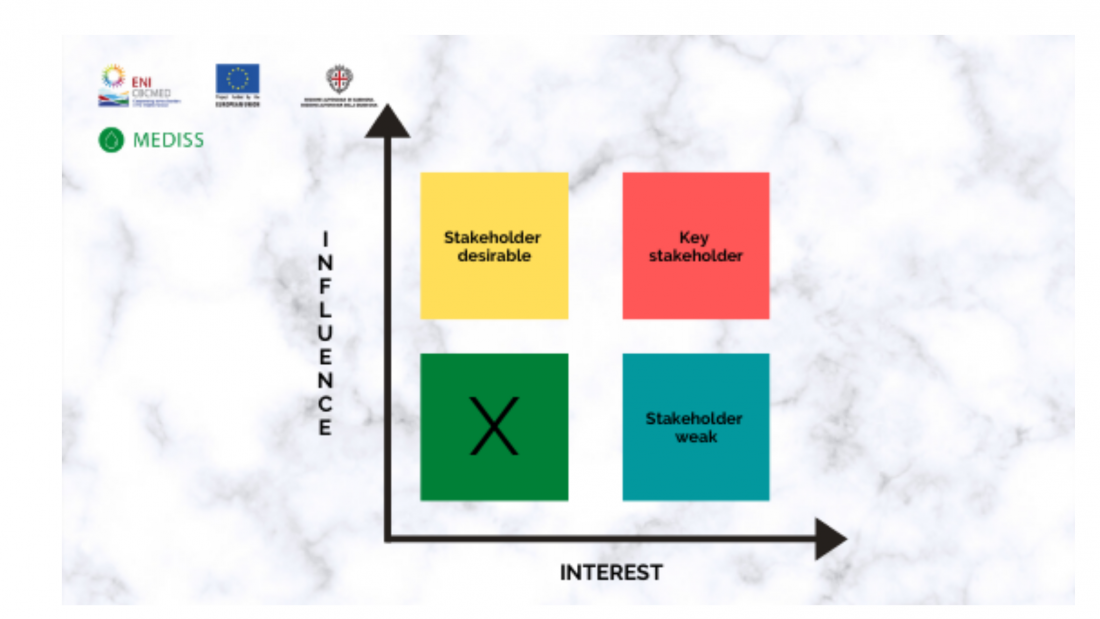Programme de sensibilisation MEDISS : démarrage de la phase préliminaire en Italie

Contenu disponible uniquement en anglais.
On July 2, 2020 CRENoS Team met on a skype conference call to examine in detail the actions under work package 5 "Awareness and Networking" for the Italian pilot area.
In particular, the experts have discussed the activities carried out so far - mostly desk or at-distance working - and have started to plan the next steps of fieldwork, because of the easing of COVID-19 restrictions.
Professor Aide Esu - Senior facilitator of the project, Professor Giovanni Sistu, -Scientific Coordinator, Filippo Petrucci - Facilitator Assistant, and the Communication Staff have deepened the results of the stakeholders’ analysis carried out in the Italian pilot area (Arborea).
Stakeholder Analysis
Stakeholder Analysis allows us to identify the interests of different groups and find ways of harnessing
the support of those in favour of the activity, while managing the risks posed by stakeholders who are against it.
It can also play a central role in identifying real development needs.
A stakeholder analysis can help a project to identify:
- The interests of all stakeholders who may affect or be affected by the project;
- Potential conflicts or risks that could jeopardize the initiative;
- Opportunities and relationships that can be built on during implementation;
- Groups that should be encouraged to participate in different stages of the project;
- Appropriate strategies and approaches for stakeholder engagement;
- Ways to reduce negative impacts on vulnerable and disadvantaged group
Stakeholders can be chosen through different methodologies. The most effective is based on their capacity to influence the process and on the level of interest they hold and it is determined by their dimension, representativeness, existing and potential resources, knowledge and specific skills, strategic position.
Within this framework, 3 macro categories of stakeholders were identified:
- Key stakeholder: their role shows high interest and influence and they hold a relevant ability to intervene in the decision-making process;
- Desirable Stakeholder: low interest high influence (opinion leader capable of influencing public opinion);
- Weak Stakeholder: high interest but low influence. They are subjects that do not have the means to express their interest forcefully. However, they often coincide with the project target.
Stakeholder Analysis represents the preliminary phase of the MEDISS Awareness Programme, along with target groups, needs assessment for a specific training programme focused on water resources management and sustainability.
The strategic role of Stakeholder Analysis lies in the opportunity to develop cooperation between the stakeholders and the project team and, ultimately, assuring successful outcomes for the project.
The MEDISS Awareness Programme, addressed to farmers, local communities and authorities, practitioners and other relevant stakeholders, aims to raise end-user awareness on non-conventional water and best agricultural practices and sustainable development.
CRENoS experts are now organizing the next phase of interviews and needs assessment, sharing the results of the desk analysis with the main partner of the Italian pilot project, the Cooperativa Produttori di Arborea.







